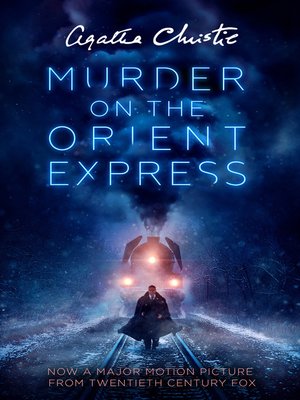Agatha
Christie’s Poirot was a long-running series for ITV that covered almost all the
Agatha Christie stories, although many of the shorter ones were loose
adaptations. They allowed us time to develop a small supporting cast, including
Poirot’s compatriot Captain Hastings, the Scotland Yard Chief Inspector Japp
and ever-loyal secretary Miss Lemon. The show had the opportunity to flesh out
Poirot’s distinct mannerisms for both comedic and humanising effect. 70
episodes were produced over 24 years, adapting pretty much every Poirot story there was, but we come close to the end with the
2010 adaptation of Murder on the Orient Express.
Since this
isn’t a film, no Rotten Tomatoes rating worth anything, but it has 7.9/10 on
IMDb right now, so make of that what you will, let’s get to the point
All 3 of
these films open with Poirot solving some case or another. This one immediately
sets a much darker tone than the others as Poirot makes a revelation about a
soldier who was lying about being with a victim, this soldier goes on to shoot
himself.
The next
oddity I remember is that Poirot had nothing to force him back to London like
he did in the book and the other two films. The train being full is an
important part of the plot, but there’s no reason in this he couldn’t catch
another train, something Poirot himself even admits.
This seems
to be the first film where M Bouc actually Belgian, well done on that front.
But I think the more important thing to note is Poirot’s attitude in this is
very different. He’s a lot colder and angrier than he seemed in the book or in
either of the other adaptations. We seem him pass a woman being stoned for
adultery, he later more-or-less says the woman deserved that for knowing the
consequences and doing it anyway. I find it hard to believe the Poirot in
either of the other adaptations would agree.
Much like
with the Albert Finney version, a lot of time is spent on the setup and the
initial interviews, most of the revelations that came out gradually through the
book are reserved for the final reveal, where Poirot’s reaction is quite
visceral. It’s a good speech he makes and it’s set up properly, there’s a lot
of focus on his Catholicism but there’s a problem. As in the book, he initially
offers an alternative solution where an outside party committed the murder, if
he truly believed that the murderer on the train was deserving of punishment,
he would never have brought it up, especially since he both knows that its
false, and that it doesn’t fit all the clues.
I understand
the Catholicism element was polarising for viewers at the time, whilst Poirot was born
Catholic in the books, it was never given the kind of attention it was given
here. But I don’t think it entirely derails the narrative, as this is kind of a
moral grey situation and both sides draw to religion to justify themselves, which
is an interesting conflict for the climax. Poirot’s reaction to the deaths
early on may seem cold, but this is season 12 of the show, he’s seen everything
and isn’t fazed by any of this anymore.
David Suchet
makes a great Poirot, with 20 + years of experience by this point, I don’t
think there’s any more to be said about it. He’s the definitive version of
Poirot across generations for good reason. Toby Jones ended up being a
fantastic Ratchett, he’s made a career of playing villains and house elves for
good reason. Even if some of the movies he’s been in have been sh*t (looking at
you Fallen Kingdom) he’s easily hateable and smarmy.
One change
that’s interesting is the loss of power on the train, meaning the passengers,
stuck in the snowdrift have the bare minimum when it comes to food and heating.
This serves as a way to keep the passengers together rather than scattered
throughout the train most of the day, and adds to a sense of dread about the
whole situation.
The David
Suchet version of Murder on the Orient Express has issues when it come to the
tone, the stoning felt in rather poor taste, even if thematically relevant. And
whilst the anger from the reveal is well foreshadowed it doesn’t quite work
when you’re incorporating Christie’s original ending. It’s not the best
directed but has a decent cast, including the definitive version of Poirot for
many, including myself.
Rating
70/100

No comments:
Post a Comment
Feel free to leave a comment, whether you agree or disagree with my opinions, and you're perfectly welcome to. Please be considerate